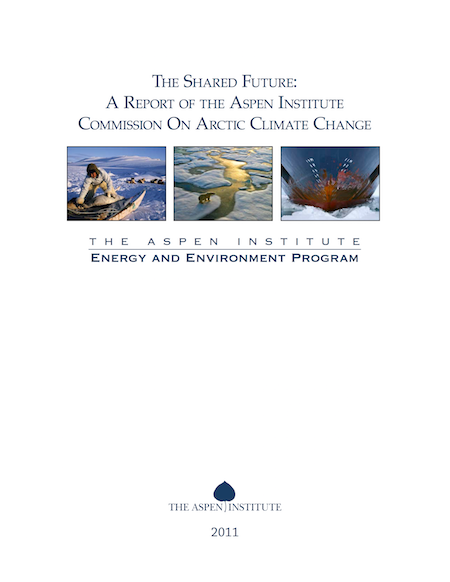The Aspen Institute and the Prince Albert II of Monaco Foundation are pleased to release the final report and recommendations of the Aspen Institute Commission on Arctic Climate Change, entitled “The Shared Future: A Report of the Aspen Institute Commission on Arctic Climate Change.” The report and recommendations promote an important new perspective on the level of international cooperation and stewardship that will be necessary to manage the Arctic marine environment in anticipation of the climate change impacts it faces.
Aspen Principles of Arctic Governance
- Optimize ecosystem resilience, integrity and productivity by maintaining food-web (trophic) structure and protecting and restoring biodiversity and available habitat.
- Maintain the full suite of Arctic ecosystem services to support human well-being on a continuing basis.
- Promote investment in scientific research and related infrastructure necessary to ensure sustainable development and environmental protection.
- Avoid exacerbating changes that may be difficult or impossible to reverse in temperature, sea-ice extent, pH, and other key physical, chemical and biological ecosystem parameters.
- Assess, monitor and manage multiple human activities using an integrated, adaptive, ecosystem-based management system that takes into account risks and cumulative and interacting effects.
- Apply ecosystem-based management processes based on science and traditional knowledge, particularly to new and expanded human activities which are subject to prior evaluation and analysis. Prudent measures to reduce or eliminate impacts are to be taken when there are reasonable grounds for concern that such activities, directly or indirectly, will bring about hazards to human health, harm living resources and ecosystems, damage amenities or interfere with other legitimate uses.
- Fully respect the rights, including human rights, of Arctic residents and Arctic indigenous peoples, and maximize participation in and transparency of decision-making for all interested stakeholders.
- Link global policy discussions to the need to conserve and manage Arctic ecosystems and dependent communities.
- Promote cooperation among Arctic states to arrive at appropriate standards for managing activities in the Arctic to meet the special conditions of the Arctic region, while promoting sustainable development.
- Inform, in a timely manner, national and international decision-makers as well as the public of the consequences of climate change impacts in the Arctic, and needed actions required to meet the above noted principles.


